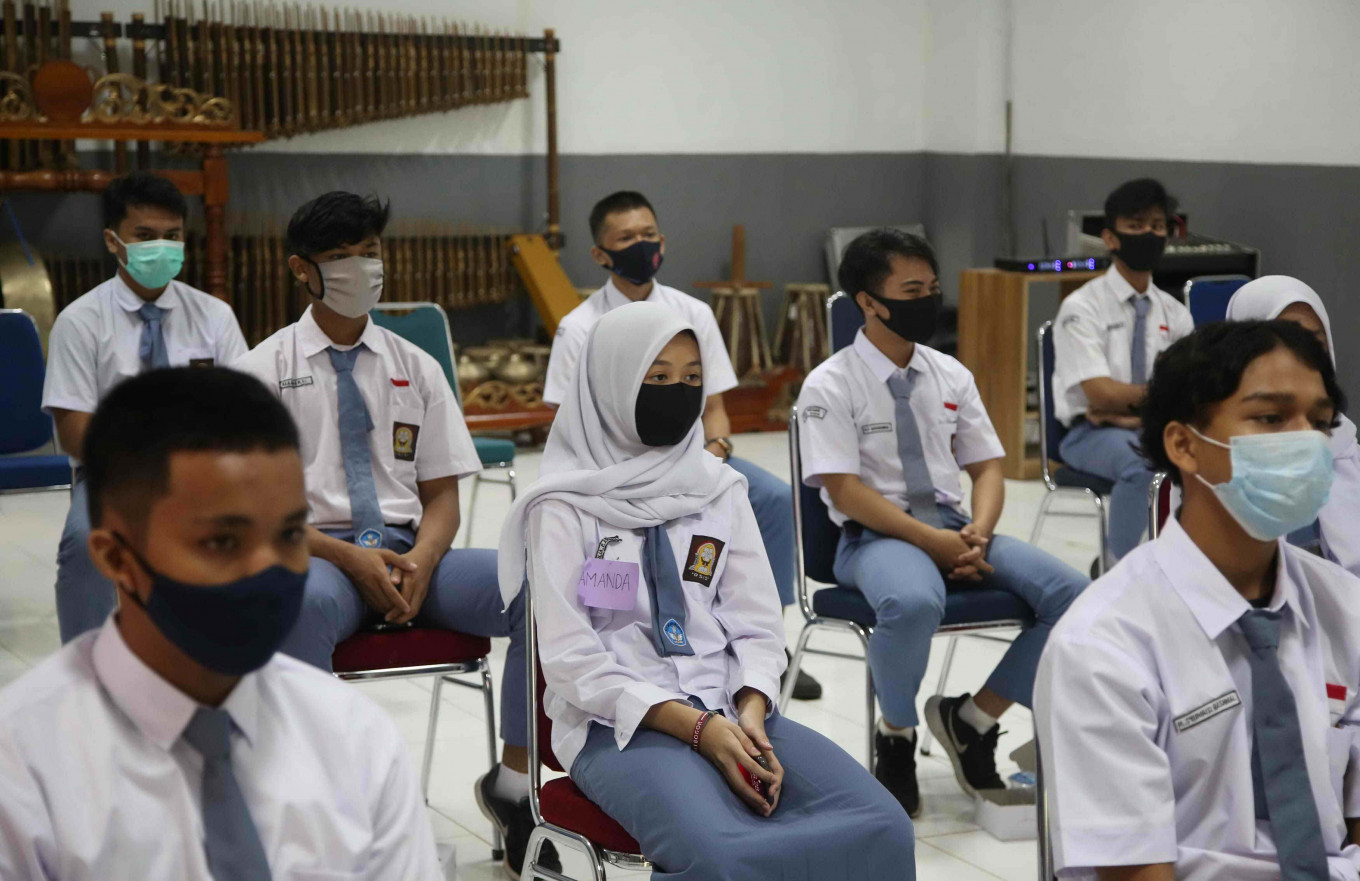
Students of SMA 1 state senior high school in Bogor, West Java, attend a student orientation session in a classroom on Monday. (JP/P.J.Leo)
JAKARTA — The majority of Indonesians want the government to reopen schools and colleges, a recent poll by Cyrus Network has suggested, despite the COVID-19 pandemic showing no signs of letting up anytime soon.
According to the survey, published on Monday, 80.2 percent of 1,230 respondents polled from July 16 to 20 were in favor or reopening schools, while 19.8 percent were opposed to it.
Cyrus Network CEO Eko Dafid Afianto said the average public approval score for the reopening of schools was 7.44, below the 7.89 average approval for government service offices reopening, the latter of which topped the list.
“The education and culture minister could take this into consideration. Eighty percent of the public ‘strongly agree’ or ‘agree’ to schools reopening,” Eko said in a virtual press conference on Monday.
Furthermore, 78.7 percent of respondents said they supported the reopening of universities, with the average approval score being 7.37.
Although most schools in Indonesia are still running online lessons, students in some parts of the archipelago returned to physical classroom learning on July 13 as Education and Culture Minister Nadiem Makarim has allowed the gradual reopening of schools in COVID-19 low-risk areas, or “green zones”, having issued a joint ministerial decree that was signed by him and the religious affairs minister, the home minister and the health minister.
According to the decree, schools that have reopened can be closed again if there is any COVID-19 transmission in the area or if the risk status of the area changes to yellow, orange or red.
Schools are required to have clean toilets, hand-washing facilities, disinfectants, thermo guns and access to health facilities to be eligible for reopening. Schools are also expected to designate areas where wearing a face mask is mandatory.
All students have to adhere to physical distancing measures and wear masks. Schools are required to limit the number of students per classroom to 18, roughly 50 percent of the previous capacity.
During the initial stage, the government is only allowing senior and junior high schools to reopen. Elementary schools will be allowed to follow suit two months after, while kindergartens will be allowed to reopen four months after, the decree stipulates.
However, the risk of transmission remains even at schools located in green zones. For instance, all schools in Pariaman, West Sumatra, were forced to close their doors for the second time and return to online classes on July 20 after two staff members of a school in the city tested positive for COVID-19. Schools in the city had reopened on July 13, which marked the start of the school year.
Indonesia’s COVID-19 cases have also continued to rise as some regions started relaxing previous restrictions. As of Monday, the country’s official COVID-19 tally stood at 100,303 cases.

